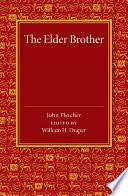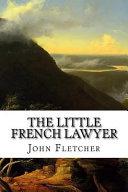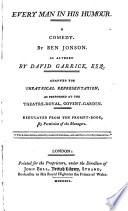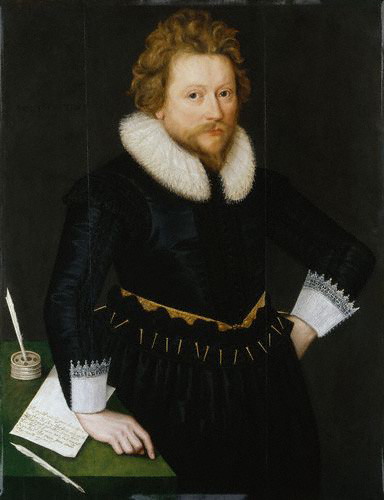Works
Wit Without Money
John FletcherThe Honest Man's Fortune
John Fletcher
The Elder Brother
John Fletcher
The Little French Lawyer
John FletcherThe Loyal Subject
John Fletcher
The Chances
John Fletcher
The Custom of the Country
John FletcherValentinian
John FletcherRule a Wife and Have a Wife
John Fletcher
The Wild Goose Chase
John Fletcher
The Island Princess
John FletcherThe Woman's Prize
John Fletcher
The Spanish Curate
John FletcherThe Humorous Lieutenant
John FletcherThe Mad Lover
John FletcherFamous John Fletcher Quotes
Valentinian (1610–14; published 1647), Act IV, scene 4.
“That soul that can
Be honest is the only perfect man.”
Epilogue. Compare: "An honest man's the noblest work of God", Alexander Pope, Essay on Man, epistle iv. line 248.
The Honest Man's Fortune, (1613; published 1647)
“From the crown of our head to the sole of our foot.”
Act II, scene 2. Compare Thomas Middleton, A Mad World, My Masters, Act I, scene 3. Pliny, Natural History, Book VII, Chapter XVII. William Shakespeare, Much Ado About Nothing, Act III, scene 2.
The Honest Man's Fortune, (1613; published 1647)
“Fountain heads and pathless groves,
Places which pale passion loves.”
The Nice Valour (c. 1615–25; publsihed 1647), Act iii, scene 3.
“Great things thro' greatest hazards are achiev'd,
And then they shine.”
Act I, scene 5.
The Loyal Subject (c. 1616–19; published 1647, 1679)
John Fletcher Quotes about love
“Let no man fear to die: We love to sleep all,
And death is but the sounder sleep.”
Act III, scene 6.
The Humorous Lieutenant (c. 1619; published 1647)
“Then, everlasting Love, restrain thy will;
'Tis god-like to have power, but not to kill.”
The Chances (c. 1613–25; 1647), Act II, scene 2. Song.
“Of all the paths lead to a woman's love
Pity's the straightest.”
The Knight of Malta (1647), Act I, sc. i.
John Fletcher: Trending quotes
“Though I say't that should not say't.”
Wit at Several Weapons (with Thomas Middleton and William Rowley; c. 1610–20; published 1647), Act II, scene 2.
“There is no jesting with edge tools.”
Act IV, scene vii.
The Little French Lawyer (c. 1619–23; published 1647)
The Lover's Progress (licensed 6 December 1623; revised 1634; published 1647), Act iii. Sc. 4. Compare: "Deeds, not words", Samuel Butler, Hudibras, part i, canto i, line 867.
John Fletcher Quotes
“This is a gimcrack
That can get nothing but new fashions on you.”
Act III, scene 3.
The Elder Brother (c. 1625; published 1637)
“Twas when young Eustace wore his heart in's breeches.”
Act V.
The Elder Brother (c. 1625; published 1637)
Epilogue. Compare: "Every man hath a good and a bad angel attending on him in particular all his life long", Robert Burton, Anatomy of Melancholy, part i. sect. 2, memb. 1, subsect. 2.
The Honest Man's Fortune, (1613; published 1647)
The Nice Valor (1647), Melancholy. Compare: "Naught so sweet as melancholy", Robert Burton, Anatomy of Melancholy.
The Woman's Prize, or The Tamer Tamed (c. 1611; published 1647), Act IV, scene 5, line 199.
The Two Noble Kinsmen (with William Shakespeare; c. 1613; published 1634), Act V, scene 1.
“Tis a word that's quickly spoken,
Which being restrained, a heart is broken.”
The Spanish Curate (licensed 24 October 1622; 1647), Act II, scene 5, Song.
The Queen of Corinth (1647), Act III, sc. ii. Compare: "Weep no more, Lady! weep no more, Thy sorrow is in vain; For violets plucked, the sweetest showers Will ne'er make grow again", Thomas Percy, Reliques of Ancient English Poetry, "The Friar of Orders Gray".
“I'll put that in my considering cap.”
Act II, scene 1.
The Loyal Subject (c. 1616–19; published 1647, 1679)
“Come, sing now, sing; for I know you sing well;
I see you have a singing face.”
The Wild Goose Chase (c. 1621; published 1652), Act II. 2.
“Drink today, and drown all sorrow;
You shall perhaps not do't tomorrow.”
Act II, scene ii.
Rollo, Duke of Normandy, or The Bloody Brother, (c. 1617; revised c. 1627–30; published 1639)
“Thy clothes are all the soul thou hast.”
Act V, scene 3, line 170.
The Honest Man's Fortune, (1613; published 1647)
“I'll put a spoke among your wheels.”
The Mad Lover, (acted 5 January 1617; 1647), Act III, scene 5.
Act III, scene 3.
The Honest Man's Fortune, (1613; published 1647)
“Let them learn first to show pity at home.”
Scene 2.
Wit Without Money (c. 1614; published 1639)
“Speak boldly, and speak truly, shame the devil.”
Act IV, scene 4.
Wit Without Money (c. 1614; published 1639)
“Look babies in your eyes, my pretty sweet one.”
The Loyal Subject (c. 1616–19; published 1647, 1679)
Act I, scene 2.
The Elder Brother (c. 1625; published 1637)
“One good turn deserves another.”
Act III, scene 2.
The Little French Lawyer (c. 1619–23; published 1647)
“Let's meet and either do or die.”
The Island Princess (c. 1620; published 1647), Act II, scene 2. Compare: "Let us do or die", Robert Burns, Bannockburn; same in Thomas Campbell, Gertrude of Wyoming, part iii. stanza 37.
Act III, scene 2. Song.
Rollo, Duke of Normandy, or The Bloody Brother, (c. 1617; revised c. 1627–30; published 1639)
Variant: Three merry boys, and three merry boys,
And three merry boys are we,
As ever did sing in a hempen string
Under the gallow-tree.
“Death hath so many doors to let out life.”
The Custom of the Country (with Philip Massinger; c. 1619–23; published 1647), Act II, scene 2
Compare: "I know death hath ten thousand several doors / For men to take their exits.", John Webster, Dutchess of Malfi (1623); act IV, scene ii
“And he that will to bed go sober
Falls with the leaf in October.”
Act II, scene ii. The following well-known catch, or glee, is formed on this song: "He who goes to bed, and goes to bed sober, Falls as the leaves do, and dies in October; But he who goes to bed, and goes to bed mellow, Lives as he ought to do, and dies an honest fellow".
Rollo, Duke of Normandy, or The Bloody Brother, (c. 1617; revised c. 1627–30; published 1639)
“There's nothing that allays an angry mind
So soon as a sweet beauty.”
Act III, scene 5.
The Elder Brother (c. 1625; published 1637)
“As high as Heaven, as deep as Hell.”
Act IV, scene 1.
The Honest Man's Fortune, (1613; published 1647)
“What mare's nest hast thou found?”
Act IV, scene 2.
The Tragedy of Bonduca (1611–14; published 1647)
Act V, scene 5.
The Tragedy of Bonduca (1611–14; published 1647)
“All things that are
Made for our general uses are at war,—
Even we among ourselves.”
The Honest Man's Fortune, (1613; published 1647)
Act IV, scene i. Compare: "Take, O, take those lips away, That so sweetly were forsworn; And those eyes, the break of day, Lights that do mislead the morn: But my kisses bring again, bring again; Seals of love, but sealed in vain, sealed in vain", William Shakespeare, Measure for Measure.
Rollo, Duke of Normandy, or The Bloody Brother, (c. 1617; revised c. 1627–30; published 1639)
“Lie lightly on my ashes, gentle earthe.”
Act IV, scene 3. ("Sit tibi terra levis," familiar inscription).
The Tragedy of Bonduca (1611–14; published 1647)
Comedy of Monsieur Thomas (c. 1610–16; published 1639), Act III, scene 1.
The Lover's Progress (licensed 6 December 1623; revised 1634; published 1647), Act I, scene 1.
Act IV, scene 1.
Wit Without Money (c. 1614; published 1639)
Act I, scene 1.
The Little French Lawyer (c. 1619–23; published 1647)
Rule a Wife and Have a Wife (licensed 19 October 1624; 1640), Act III, scene 5.
Act V, scene 2.
The Tragedy of Bonduca (1611–14; published 1647)
Act II, scene 1.
The Little French Lawyer (c. 1619–23; published 1647)
Act V, scene 2. Compare William Shakespeare, The Taming of the Shrew, introduction, scene 1, line 5. Also Scene 2, line 146. ("Slip" in folio).
Wit Without Money (c. 1614; published 1639)
Act IV, scene 4.
Wit Without Money (c. 1614; published 1639)
